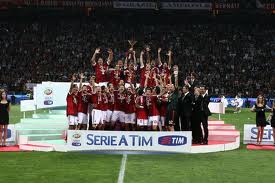By Mark Baber
November 21 – Following the election of Carlo Tavecchio, who came to power using racist rhetoric which has earned him a six-month UEFA ban, the Italian Football Federation (FIGC) has acted to implement his core election agenda item, passing new regulations limiting the number of foreign players in Italy, especially those from countries outside the EU.
Serie A squads will be limited to 25 players (not counting under 21 players), four of whom have to have grown up in Italy and four of whom have to be products of their club’s academy.
An academy player from a non-EU nation can only be registered if he is already resident in the country, if he has come to Italy with his parents for non-sporting reasons and been in school for at least four years.
A new non-EU player can only be brought in to replace another if he has already held a professional contract for at least three years and the practice of freeing up places by loaning foreign players abroad is no longer allowed.
According to the FIGC these rules were approved unanimously (if we don’t count the Players’ Association and the Coaches’ Associations) and they are aimed at “seeking financial sustainability of clubs with consequent investment in national academies.”
The rules are similar to the rules that UEFA has for Champions League squads. The main effect is likely to be to cut Italian Serie A clubs off from African and South American youngsters and to complicate the business of building top-class teams.
Italian clubs have generally thrived best with a combination of home-grown and foreign talent. One only has to think of AC Milan of the late eighties and early nineties which combined the talents of Gullit, Rijkaard and Van Basten with those of Maldini and Baresi. And AC were playing in a superb league which included the likes of Diego Maradona and Careca at Napoli and Matthaus, Klinsmann and Brehme at Inter .
In recent times players from outside the EU such as Johnnier Montano (Colombia), Ibrahima Mbaye (Senegal), Alexandre Pato (Brazil), Asamoah Gyan (Ghana) Sulley Muntari (Ghana), Cristian Daniel Ledesma (Argentina), Adriano (Brazil), Stephan Appiah (Ghana) and Alexis Sanchez (Chile) have joined Italian clubs in their teens, enriching Italian club football and playing for their countries.
Now Serie A clubs will be forced to promote academy players to the first team, regardless of their ability or keep them on the books because they are home grown.
Serie A president Maurizio Beretta welcomed the changes saying: “These reforms are very important because they will enhance Italian football, our youth players and our grass roots system.
“They have been in the air for many years. But we need time to put them in place and make them work. You can’t expect results from one day to the next.”
Critics suggest that by distorting the market, Italian clubs could end up spending more money to buy in foreign players, as they have to pick them up later in their careers.
Whether the changes, which take effect in 2016, will have any positive effects at all remains to be seen – whilst the likelihood of Serie A clubs continuing to struggle in European competition in the short term seems high.
Contact the writer of this story at moc.l1734870281labto1734870281ofdlr1734870281owedi1734870281sni@r1734870281ebab.1734870281kram1734870281

